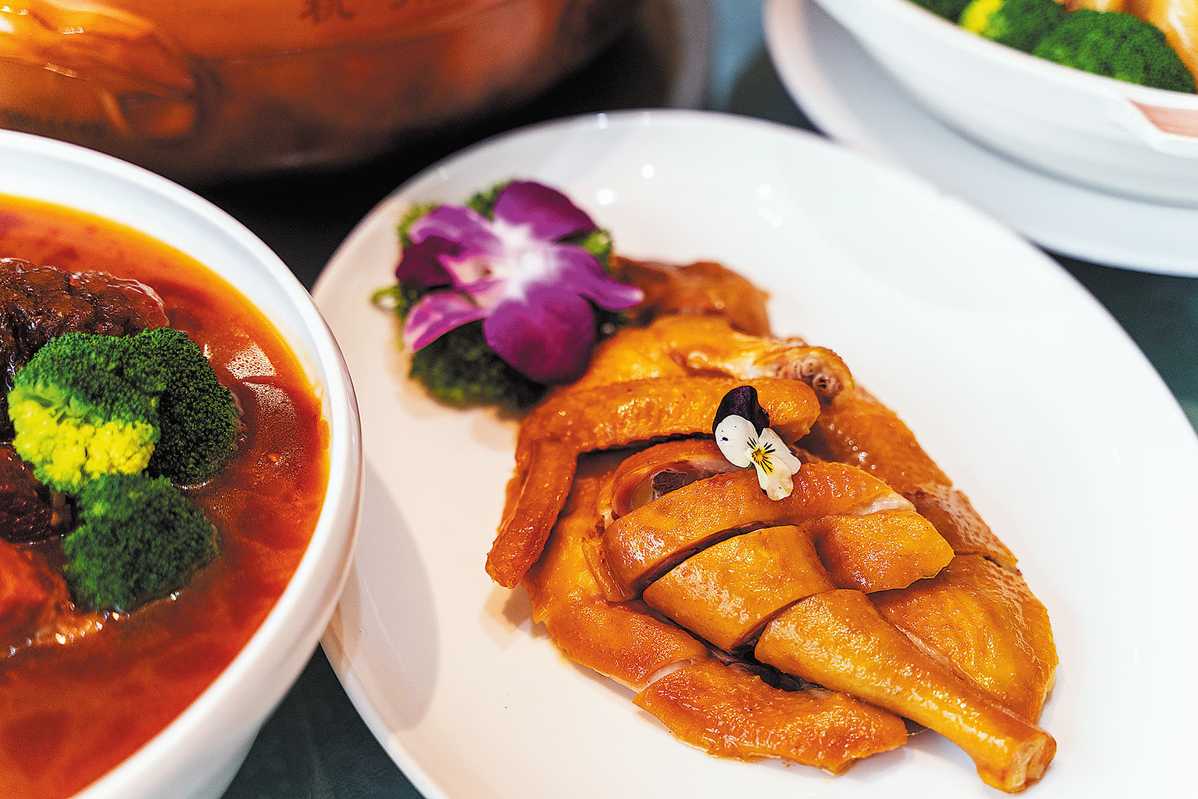
Salt-baked chicken, a Hakka dish. DING JUNHAO/FOR CHINA DAILY
Salt-baked chicken, stuffed tofu and a traditional pork soup may become mainstays in Singapore's food culture and help promote interest in the culture of the Chinese Hakka community in Singapore.
This is the hope of Char Yong (Dabu) Association's president Ho Siong Hin, as Hakka restaurant chain Hakka Yu, which has more than 80 outlets in China, opened its first overseas restaurant at Changi Airport last year.
It is a joint venture between Hakka Yu founder Xu Ke Peng, 44, and Fong Chi Chung, 56, founder and chairman of Putien Group behind the major Chinese restaurant chain.
Hakka Yu hopes to work with the clan association to enrich the cultural dimension of its dining experience, offering patrons a deeper understanding of Hakka culture.
Members of the Hakka, also known as kejia under the pinyin Chinese writing system, can trace their roots to Northern Chinese who migrated to South China as early as the Eastern Jin Dynasty (317-420), retaining their distinctive customs, dialect and lifestyles.
Singapore's Hakka community is its fourth-largest Chinese-speaking group, with more than 200,000 people.
Hakka cuisine is known for its natural flavors and preservation techniques, reflecting the agricultural lifestyle and migration history of the Hakka people. Hakka dishes often use simple, earthy ingredients with robust cooking methods such as braising, roasting and slow-cooking.
Hakka Yu, founded in 2013 in Guangzhou, was recognized as one of China's Top 100 Restaurant Brands (2019-2020).
Ho, 66, said: "There is less and less Hakka food in Singapore. As a result, Hakka cuisine is not as well known here."
Speaking at the media preview of Hakka Yu on Dec 10 at his clan association in the Geylang area, Ho said he hopes "more people will appreciate our food and culture with Hakka Yu's launch, and those of Hakka ancestry will join our clan association too".
The clan association, which has about 6,000 members, was founded in 1858 to look after the welfare of Hakka immigrants from Dabu in Guangdong. Its new building will be completed in 2025. It will be two streets from the association's current building in Geylang.
One of the facilities in the new building will be a kitchen, which Ho said will be used for food research and networking. This is where the clan association can work with Hakka Yu to share knowledge about Hakka food and even fine-tune the dishes to suit local preferences.
Fong said his early encounters with Hakka food were primarily through hawker dishes such as Hakka yong tau foo and thunder tea rice.
It was only when he went to eat at Plum Village — Singapore's dedicated Hakka restaurant in the Jalan Leban area — that he experienced the distinct flavors of Hakka dishes such as rice wine chicken, Hakka fried spring roll and Hakka-style noodles. These are dishes rarely found in the local food and beverage scene, he said.
"Will Hakka Yu be a competitor of Putien? Not at all," Fong said. "Putien is known for its seafood, while Hakka Yu focuses on flavorful meat and wild vegetables from the countryside."
Xu said they may even work together on a Hakka food festival in the future.
THE STRAITS TIMES, SINGAPORE